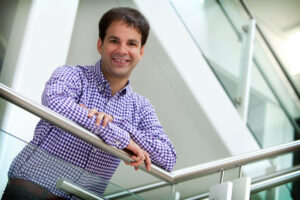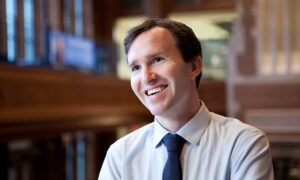Every day, social service professionals tackle complex problems across varying domains, working to determine which interventions are likely to be effective, fair and within an agency’s capabilities.
For a struggling parent in danger of losing their home, which alternative would prove more helpful in the long run, housing assistance or job training? Might a child in an unstable home benefit more from food assistance or an after-school program?
To tailor the right interventions, professionals use the tools at their disposal, including training, experience and a wealth of data. Taking into consideration all the available data would be a tall order for any person, particularly when they are focused on the people they’re helping.

A new PhD program at Washington University in St. Louis is looking at developing additional tools for use in social services and other areas dealing with human and social behavior: computer programs that can use this wealth of data to help humans better understand problems in the social sciences.
This is the inaugural semester of the Division of Computational and Data Sciences (DCDS), one of a few of its kind in the country, which focuses on turning the computational lens on social sciences. The program has four tracks:
- computational methodologies,
- social work and public health,
- political science, and
- psychological and brain sciences.
Students come from either a computer science or social science background, but have a team of mentors from different disciplines and graduate as experts in a transdisciplinary field, creating something brand new.

It’s not that the disciplines haven’t worked together in the past, said Sanmay Das, associate professor in the Department of Computer Science and Engineering and head of the computational methodologies track. It’s not unusual for him to be approached by a social scientist asking the help of machine learning to solve a problem that involves a lot of data.
“But what really gets me excited,” Das said, “is when a social scientist’s problem enables exciting conversations between the disciplines, leading to the discovery of a new problem that transcends traditional disciplinary boundaries.”
DCDS sits at that nexus of social science and computer science, where an interesting question in the former leads to an equally interesting question in the latter.
Das and Patrick Fowler, associate professor in the Brown School and head of the social work and public health track, have recently received two grants for projects that illustrate the potential power, and complexity, of marrying the disciplines.
